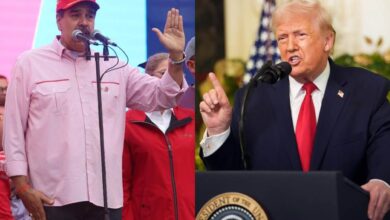Facebook against cryptocurrencies
The social network reported on the prohibition to advertise and promote cryptocurrencies on its platform

The decision would have a great impact on markets and the promotion of cryptocurrencies. How will it the value be affected? What is the reason for this measure? Could it accelerate the bursting of a financial bubble?
In 2017, cryptocurrencies increased their prices exponentially, which has caused a boom in demand. In particular, the demand is presented when acquiring Bitcoin, whose price rose by 1700%, its maximum value, in 2017.
This volatile behavior indicates that it could be a speculative bubble, which eventually could explode. An example of a speculative bubble is the case of the South Sea Company, an XVIII-century British trading company that attracted large investments based on expectations of greater trade with South America.
Thus, the value of the company increased considerably. However, because trade with South America was controlled by Spain, these profits never materialized and the bubble burst, causing large losses to investors.
Facebook’s decision
Therefore, Facebook declared war against cryptocurrencies. Although Facebook is in favor of the growth of emerging companies, some of these corporations are not acting in good faith. The social network announced the prohibition of advertising on cryptocurrencies as well as establishing initial offers of currencies -the so-called “initial coin offerings” or ICOs-.
Furthermore, the decision is based on the fact that cryptocurrencies are often associated with misappropriation of funds or illegal practices. Likewise, the network urged its users to report this type of activity, which is no longer valid. This prohibition caused negative reactions in the cryptocurrency market, with a large negative impact on the price of the same.
What is ICO?
ICOs are mechanisms used by emerging companies to obtain resources. This mechanism constitutes a means by which a cryptocurrency associated with a project is issued. Thus, you can obtain large amounts of resources to finance a company. In other words, it can be said that it is similar to crowd-funding, the method through which an entrepreneur announces his idea and sells a cryptocurrency to get money to start a business.
The problem of this mechanism is the various frauds that have been generated, because false projects can be presented to obtain large resources through an ICO, and then the invested money disappears. Since there is no regulation for these funds, ICOs are a mechanism for unscrupulous frauds to legitimize capital.
These are the reasons that have led the social network Facebook to prohibit the advertising of ICOs and cryptocurrencies, in order to avoid misleading offers, fraud and thus protect users of the platform. To this measure have also been added various countries that have banned ICO as sources of financing, through the regulation of the use of cryptocurrencies.
More prohibitions against cryptocurrencies
South Korea, one of the largest markets for virtual currencies, seeks to ban its use, because it believes that the market for cryptocurrencies is beyond the control of the laws. It also states that virtual currencies do not work as means of payment and they are used for illegal activities.
Furthermore, in September last year, China vetoed transactions with bitcoins for banks, as it believes that this type of operations contribute to the illegal collection of funds. In addition, it announced the intention to make illegal the mining of cryptocurrencies.
In this context, the measure taken by Facebook, coupled with the governments’ need to regulate cryptocurrency, would avoid speculation and the creation of ghost funds. However, it would also cause a drop in the value of the cryptocurrency, which could reduce the possibility of a financial bubble. The future development of the events will show if the cryptocurrencies correspond to speculative assets or on the contrary constitute sustainable assets over time.
LatinAmerican Post | Pedro Delgado
Translated by Marcela Peñaloza





